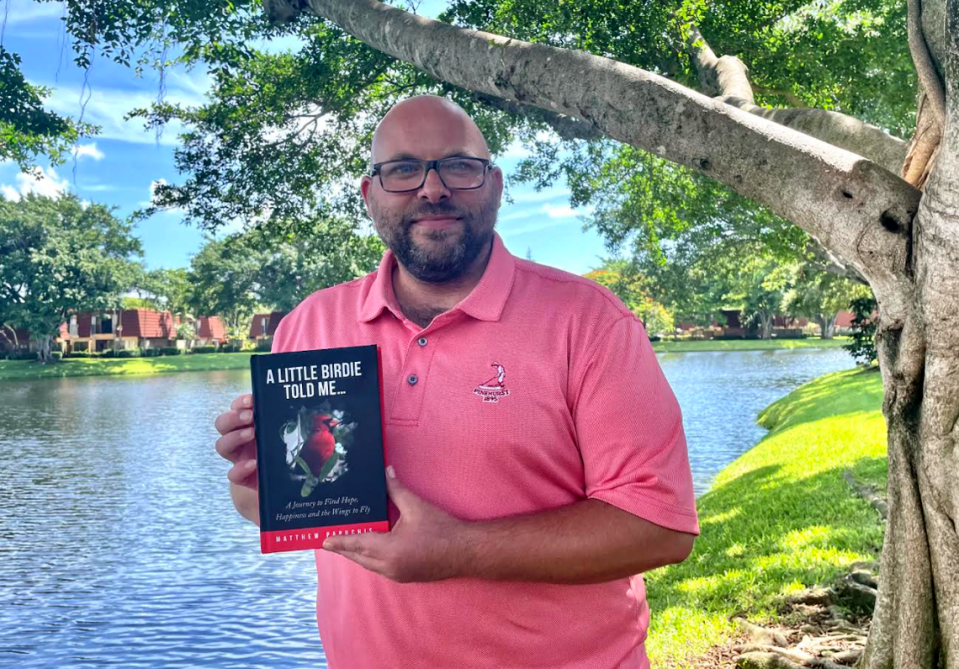With a plan to grow veggies in space, 3 men from Dade are finalists in nationwide contest
Those of us who have a tough time growing a simple tomato plant cannot possibly imagine harvesting crops in space.
But three South Florida men can.
They are among the finalist teams of the three-year nationwide “Growing Beyond Earth Maker Challenge.” Their plant-growing method, they hope, will someday be found on the International Space Station.
Photographer Jack Hahn who lives in Kendall heard about the program while working as a volunteer in the Fairchild Tropical Botanic Garden Imaging Lab. He submitted a proposal to grow “veggies in space that do well in microgravity.”
It impressed the judges—Gioia Massa, NASA Plant Research, Trent Smith, NASA Procurement, and Ralph Fritsche, NASA Veggie Project Manager.
Hahn eventually was named one of the six finalists in the Professional category.
“I was very excited to hear that I was a finalist,” he said. Hahn is husband of Marjorie Hahn, Executive and Music Director of the Emmy Award-winning South Florida Youth Symphony.
“But I realized that I needed to put together a team with various skill-sets and talents to go further.”
So, in May, Hahn met with the other two Fairchild volunteers who responded to an email he sent out.
Coconut Grove’s Nic Brunk, a molecular biologist and crew coach for the Miami Beach Rowing Club, and Shenandoah’s Allen Diehl, a photographer with a degree in mechanical engineering, joined the collaboration.
Their goal is “to grow high-density vegetables with a high Vitamin K benefit in a limited amount of space, a 50 cm cubic growing environment, using an autonomous system that won’t require any further human interaction after initial seed planting over a 30-day period.”
They came up with an eye-catching design, based on NASA specs, that looks like it’s from space. And, in a bold move they hope will impress, the three are growing their plants hydroponically.
“Even though you think of ‘weightlessness’ in space, weight is everything, including in the space shuttle bringing supplies to the ISS,” Brunk said. “Soil is weight and messy to deal with, especially in space.”
“Hydroponics is definitely the way to go,” Diehl said. “It eliminates the soil factor, and you can recycle or repurpose the water.”
All three agree that the small monetary prize that awaits the winner of the NASA/Fairchild collaboration, which will be announced in July or August, is not the reason for the countless hours of sometimes-tedious work.
“This competition will provide NASA with valuable input and data, which will someday enable those on the International Space Station as well as Moon and Mars missions with a means of complimenting their diet while giving them something live and green to look at in a sterile environment,” Hahn said.
“It will be great to know that our team had something to do with that.”
FIRST-TIME AUTHOR GUIDED BY BIRDS
When Matthew Papuchis found himself unemployed for the first time in more than 25 years, he discovered the hope and happiness he was seeking in an unexpected place—nature paths.
The father of three was on the cusp of his 40th birthday and was battling self-doubt while seeking a new career during the most trying times of the pandemic.

But then Papuchis discovered that by exploring the relatively unknown-to-him world nearby, and taking time to think and reflect, he found peace, clarity, and himself.
He was especially guided by birds.
“Little ones and big ones and the preserves, parks, and wildlife refuges they call home, are all within miles of my house in Plantation,” Papuchis said.
To help others who might be experiencing the same thing, he published his first book, “A Little Birdie Told Me…”, in March. Each chapter focuses on life lessons, perspective and positivity.
Papuchis said he learned through his walks, and the birds, to never lose sight of the possibilities that are out there, for himself and for all of us. He has since found a new job.
Retired American diplomat Peter G. Kaestner, the World’s No. 1 eBirder with 9,294 species observed, called the book “a delightful read.”
“Matt has such an easy way with words. He skillfully weaves important life lessons around his newfound passion for birds, discovered during the pandemic lockdown.
“We can all relate to the wise lessons in this book and laugh at some of the amusing experiences Matt shared. By the end of this book, you will feel like you and Matt are old friends,” Kaestner said in an advance book review.
“A Little Birdie Told Me…” can be ordered in hardcover, paperback and Kindle online at Amazon, Target and Barnes & Noble at https://www.barnesandnoble.com/w/a-little-birdie-told-me-matthew-papuchis/1139201009
Write to ChristinaMMayo@gmail.com with news for this column.
